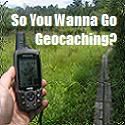The great GPS stash hunt
Published: March 26, 2009
|
By Jan Short
The ‘Wild Rivers Coast' is home to some of the most beautiful scenery anywhere in the world. The coastal trails lead to shimmering waterfalls and pristine beaches through magnificent growths of forests, ferns and wild berry patches.
What many in this area are not aware of is that these same coastal trails hide other treasures – man made in origin. These treasures are called ‘geocaches' (pronounced geo-cashes). Geocaching is a worldwide game of hiding and seeking treasure. A geocacher can place a geocache (a container filled with tradable items) anywhere in the world, pinpoint its location using GPS technology and then share the geocache's existence and location online.
Anyone with a GPS unit or a map and coordinates can then try to locate the geocache. According to the official geocaching website there are 724,583 active caches worldwide. In a 30-mile radius of Gold Beach there are approximately 239 caches hidden and seven active caches within the city limits of Gold Beach.
The origins of hunting for treasures goes back as far as prehistoric man and the hiding of ‘caches' of food. Cave paintings and marks on trees may have been clues to the whereabouts of these hidden caches. As need became less of an incentive, the quest for treasures became more of a game. Modern man has developed technology to improve upon this activity.
The game of Geocaching goes back to an event that happened on May 2, 2000, when, unknown to most people, our government released orders that upgraded 24 satellites' Global Positioning Technology. Since Oregon has long been acknowledged as a stronghold of outdoor enthusiasm, conservation and adventurers, it is not surprising that on May 3, one such enthusiast, Dave Ulmer, a computer consultant, wanted to test the accuracy of the new technology by hiding a navigational target in the woods near Portland. He called the idea the "Great American GPS Stash Hunt" and posted it on an Internet GPS users' group website.
The idea was simple: Hide a container out in the woods and note the coordinates with a GPS unit. In the course of a few years the game and the name evolved to include a website and players from all over the world.
It is not surprising that many innovations to this game have been added over the years. One called ‘Travel Bugs' has become very popular. Travel bugs have tags with numbers that have been logged by the official Geocaching site. When a travel bug is launched it is put into a cache and the number and location are logged online. Whenever this bug is found and moved it is logged by the finder and the new location is posted. One travel bug, "Mr. Wonderful," began its journey in Gold Beach. It has traveled across this country, the Atlantic Ocean, and through Austria, France, and back again. Mr. Wonderful has not made it back to Gold Beach, but it is still traveling in the United States and has logged more than 14,000 miles. Most travel bugs do not enjoy such a long journey; many disappear, so Mr. Wonderful's journey is quite a feat.
One of the best aspects of this game is that it leads you to places you might not have ever seen without the incentive of the game. Caches are hidden in places that people have found and want to share with others, either because of the history or the beauty of the spot. Many towns and cities have begun hiding caches in places they want people to discover such as hidden parks or memorials and places of interest within their city that the casual tourist might not ever discover on his own. Boy Scout troops have begun using the game as a means of teaching the scouts outdoor skills. Parents and families use the game as a way to explore and spend time together.
If you are interested in learning more about this game you can log onto geocaching.com; don't be intimidated by the fact that a GPS is required.
There is an offshoot called ‘letterboxing' that is done strictly using clues. To learn more about letterboxing you can begin on the geocaching site and then find the link.









No comments:
Post a Comment